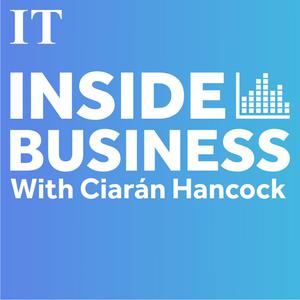
Irish Times Inside Business
The Irish Times
A weekly look at business and economics from an Irish perspective hosted by Irish Times Business Editor Ciarán Hancock.
- 35 minutes 53 secondsIs Ireland’s planning system broken?
Last week a high-profile residential property scheme for Dundrum village in Dublin, that would have delivered 881 apartments and a mix of commercial units, was rejected by An Bord Pleanála.
The scheme had first been proposed in 2021 by Hammerson and Allianz who between them owned the land. In a rejection letter the board was strong in its language noting the excessive density, height and scale, together with its “monolithic appearance”. And that it would have had an overbearing impact on neighbouring residential properties.
This decision prompted Cliff Taylor of the Irish Times to write a column on the issue and its relevance to the housing crisis here. He joins host Ciarán Hancock on this week’s episode of Inside Business.
Also joining the show is Tom Phillips, an experienced planning consultant who has been involved in a number of large development applications, but not the one for Dundrum. He gives his thoughts on how the planning system works, the role of planning consultants, and the contradictions in the current system that are holding us back as we seek to break the log jam of the housing crisis.
Produced by John Casey with JJ Vernon on sound.
Hosted on Acast. See acast.com/privacy for more information.
15 January 2025, 3:29 pm - 44 minutes 56 secondsCould a glut of affordable EVs tempt Irish motorists to make the switch?
Figures for 2024 showed a 1 per cent decline in total car sales across the Irish market versus 2023. But the number of electric vehicles sold reduced by almost 24 per cent with just 17,459 registered. This is against the backdrop of a government target to have one million EVs on Irish roads by 2030 as we phase out the use of fossil fuels.
Neil Briscoe writes extensively about motoring for the Irish Times and he joined host Ciarán Hancock on the line to go through some of the affordable options for those looking to buy, and explain why sales of EVs went into reverse last year.
In part two of the podcast, we hear from Conor Hanley, chief executive and president of Fire1, an Irish MedTech company that this week raised $120million to fund final clinical stage trials in the US for a device which helps monitor heart failure. He joined Ciarán in studio to explain why he thinks the technology is a major breakthrough for the many millions of people who suffer from this potentially life-threatening condition.
Produced by John Casey with JJ Vernon on sound.
Hosted on Acast. See acast.com/privacy for more information.
8 January 2025, 3:03 pm - 36 minutes 52 secondsWhat’s in store for 2025?
For this week’s episode, host Ciarán Hancock was joined by a stellar panel to look forward to 2025. They tried to predict what would happen with foreign direct investment with Donald Trump back in The White House, a new coalition government is to be formed but will it solve the decade-plus housing crisis, and they consider the impact of artificial intelligence – can it live up to the hype of the last two years?
The panel comprises Feargal O’Rourke, the former PwC managing partner, who now wears many corporate hats, including as chairman of IDA Ireland, Marian Finnegan is Managing Director of Residential at Sherry Fitzgerald, the country’s biggest firm of estate agents, while Chris Horn is a tech entrepreneur and columnist at the Irish Times.
Produced by John Casey with JJ Vernon on sound.
Hosted on Acast. See acast.com/privacy for more information.
31 December 2024, 7:45 am - 24 minutes 7 secondsA year of thoughts on Ireland’s housing crisis
Ireland’s ongoing housing crisis was the number one concern for voters as they went to the polls in November with scarce supply and price inflation a feature throughout 2024. It was also a topic covered repeatedly on this podcast throughout the year with many experts and contributors offering context, insight, and in some cases, potential solutions to the housing crisis.
Produced by John Casey.
Hosted on Acast. See acast.com/privacy for more information.
23 December 2024, 7:30 am - 27 minutes 20 secondsHospitality in Dublin: ‘stress and burnout are getting worse in the industry’
It has been another tough year for restaurant and café owners – according to the Restaurant Association of Ireland, two venues a day are closing as businesses struggle to make ends meet amid rising inflation and a spike in payroll costs.
On this week’s episode of Inside Business, host Ciarán Hancock is joined by Vanessa Murphy, co-owner of Las Tapas de lola on Camden Street in Dublin’s city centre, and Aisling Rogerson, owner of the popular Fumbally café and bakery in Dublin’s Liberties. They discuss their trading struggles post-Covid, rising prices and menu changes, the challenges of recruiting and retaining staff, and how they have changed their trading hours to reflect the altered dining habits of customers.
Produced by John Casey with JJ Vernon on sound.
Hosted on Acast. See acast.com/privacy for more information.
18 December 2024, 4:15 pm - 42 minutes 10 secondsFrom Apple Tax to Swiftonomics: 2024 in review
As 2024 nears its end, Inside Business looks back at some of the big stories of the year. Everything from rising house prices to soaring corporation tax receipts, to Taylor Swift concerts and Donald Trump’s re-election as US president.
To review the year, host Ciarán Hancock iss joined by Eoin Burke-Kennedy, Conor Pope and Ian Curran of The Irish Times to discuss issues around housing, the cost of living crisis, the €13 billion Apple tax ruling, and the demise of many restaurants and cafes.
Produced by John Casey with JJ Vernon on sound.
Hosted on Acast. See acast.com/privacy for more information.
11 December 2024, 4:58 pm - 35 minutes 53 secondsRetailers in Dublin: “shoplifting is a huge concern”
On this week’s episode of Inside Business, host Cliff Taylor is joined in studio by Louisa Earls, manager of Books Upstairs, along with Laura Caffrey, & Clare Grennan, Co-Owners of Irish Design Shop, to get an insight into their experience as independent retailers in Dublin city during a period of the year that accounts for up to a third of their annual sales.
Louisa discusses the pivot Books Upstairs made towards online sales during the early days of Covid, the titles that have flown off the shelves this year, competing with Amazon and what the government could do better to protect small independent businesses operating in the city.
Laura and Clare from Irish Design Shop explain the challenges of starting a business in the teeth of the financial crash in late 2008, stocking products from over 60 Irish designers in its Drury Street shop, soaring tourist trade and why so many online orders are now coming from suburban Dublin.
All three guests highlight the surge in shoplifting and why it is so difficult to combat.
Produced by John Casey with JJ Vernon on sound.
Hosted on Acast. See acast.com/privacy for more information.
4 December 2024, 3:18 pm - 38 minutes 58 seconds‘Ireland is on a winning streak’: The outsider’s view of our economy
With the Irish government rolling in clover like never before, what is the outsider’s view of our economy?
Max Colchester, Britain Correspondent for the Wall Street Journal, has been writing about this following his recent visit to Dublin. He notes how other governments around Europe are struggling and raising taxes while we have set up two sovereign wealth funds to make good use of the billions in corporate tax receipts that continue to roll in – something that hasn’t gone unnoticed by Donald Trump’s pick for Commerce Secretary, Howard Lutnick.
He joins host Cliff Taylor to discuss the envious position Ireland finds itself in.
Also on this episode, Irish Times Consumer Affairs Correspondent Conor Pope digs into whether the onslaught of advertised bargains for Black Friday are as good as they sound.
Why do sales now start weeks before Black Friday? Can I get the same bargains during the year? And does buyer’s remorse and this annual event go hand in hand?
Produced by John Casey with JJ Vernon on sound.
Hosted on Acast. See acast.com/privacy for more information.
27 November 2024, 2:54 pm - 34 minutes 25 secondsIrish companies are already preparing for impact of Trump’s tariffs
Donald Trump’s stance on imports coming into the US could have very real implications for Irish transatlantic trade.
September proved to be a record month for Irish exports, as well as a record level of exports going to the US. This underlines the importance of a market that could be jeopardised if the president-elect follows through on his promise to introduce blanket tariffs on goods entering the US.
Carol Lynch is customs and trade partner with BDO Ireland and she joined host Cliff Taylor to give some insight into what those tariffs could do to the Republic’s largest export market outside of the EU, and how Irish companies have already started preparations to manage those impacts.
Cathal Foley and his company PACE won the sustainability and overall prize at the 2024 Irish Times Innovation awards.
PACE stands for Platform for Analysing Carbon Emissions, specifically airline carbon emissions. The aviation sector has set an ambitious target of net zero emissions by 2050, something that is likely to cost around five trillion dollars. Cathal explained how PACE aims to help the sector achieve that target.
Produced by John Casey with JJ Vernon on sound.
Hosted on Acast. See acast.com/privacy for more information.
20 November 2024, 5:12 pm - 39 minutes 51 secondsWhy switching your mortgage rate can save you a lot of money (especially if you are green)
Research from online broker Doddl.ie has estimated that savings of about €7,400 a year could be achieved by switching your mortgage rate. Martina Hennessey is chief executive of Doddl.ie and she joined host Ciarán Hancock to go through the maths on this. She also explained how the most attractive rates available apply to those with the most energy efficient homes.
In the past week, the US stock market has surged following Donald’s Trump’s election victory. Donnacha Fox is chief investment officer at Quilter Cheviot and joined Ciarán in studio to explain why US stocks and crypto have spiked since it became clear that Trump was heading back to the White House.
Produced by John Casey with JJ Vernon on sound.
Hosted on Acast. See acast.com/privacy for more information.
13 November 2024, 3:15 pm - 31 minutes 29 secondsWhat Trump’s presidency could mean for Ireland’s economy
After a remarkable political comeback, Donald Trump will be the next President of the United States. So, what will that mean for the Irish economy, given that he has threatened huge tariffs on imports and promised to slash its corporate tax rate.
Host Ciarán Hancock is joined by Cliff Taylor of The Irish Times to get his view on how bad a Trump presidency could be for Ireland.
Also on the show, Conor Pope of The Irish Times explains why being single can cost you more than €300,000 over and above what a person in a couple will pay over the course of their adults lives, taking into account areas like housing, groceries, and taxes.
Produced by John Casey with JJ Vernon on sound.
Hosted on Acast. See acast.com/privacy for more information.
6 November 2024, 3:27 pm - More Episodes? Get the App
Your feedback is valuable to us. Should you encounter any bugs, glitches, lack of functionality or other problems, please email us on [email protected] or join Moon.FM Telegram Group where you can talk directly to the dev team who are happy to answer any queries.
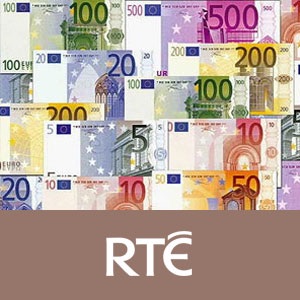 RTÉ - The Business
RTÉ - The Business
 Down To Business
Down To Business
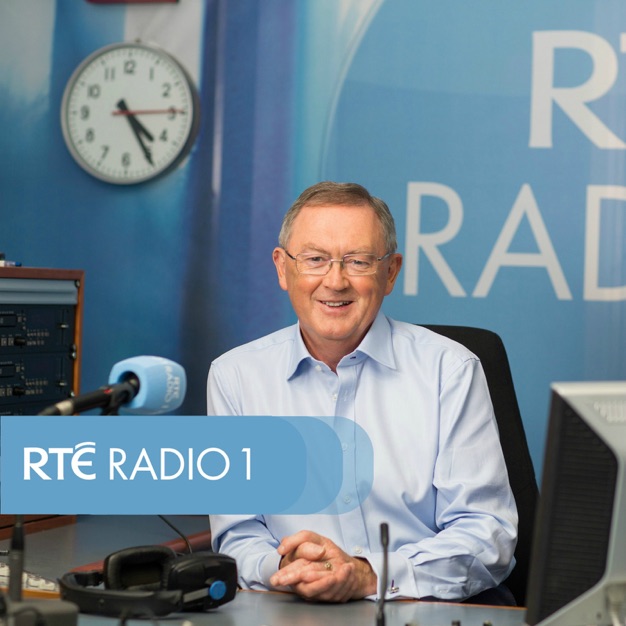 RTÉ - Today with Sean O'Rourke
RTÉ - Today with Sean O'Rourke
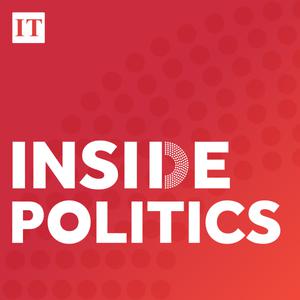 Inside Politics
Inside Politics
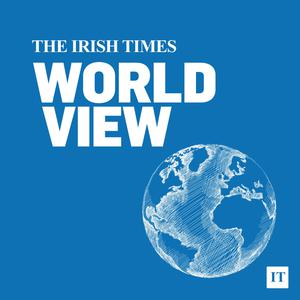 The Irish Times World View Podcast
The Irish Times World View Podcast